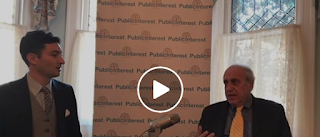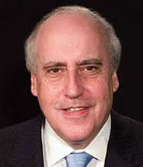Reducing the Influence of Money in Politics
Reducing the Influence of Money in Politics
"Money is the mother's milk of politics." -Jesse 'Big Daddy' Unruh
"There is no poor people's PAC." -Bob Dole
"The extraordinary volume of money in the system is dramatically hurting our government’s ability to function." -Dan Glickman
This past Friday December 1st, former U.S. Secretary of Agriculture Dan Glickman, who also served 18 years representing Kansas in the U.S. Congress, joined me in conversation at the Dupont Summit to reflect on the influence of money in politics.
Problems:
Getting elected is an increasingly expensive proposition. Glickman's first campaign for Congress cost him $100,000. He says that the cost of running such a campaign now would be $5 million. And once in office members of Congress spend the majority of their time fundraising instead of legislating or building relationships with their colleagues. The result is increased partisanship that previously had been overcome on the basis of personal relationships.
On top of all of this members of Congress are expected to effectively pay a "committee tax" whereby one's rise through the political hierarchy is increasingly dependent upon one's ability to fundraise and contribute those funds to the Party's coffers rather than being based upon one's seniority, competence, ability, and party loyalty. An increasing reliance on large contributors inevitably grants large donors greater access to legislators and greater influence over the legislative process, thus crowding out the voices of those lacking the ability to contribute large sums to political campaigns.
Secretary Dan Glickman (Ret)
Solutions:
In our discussion Secretary Glickman opined that passing the citizenship test should be a prerequisite for high school graduation. Why? A lack of citizen engagement in our democracy, said Glickman, has been born of both ignorance as to how different levels of government affect our daily lives and of a sense that their voices do not matter and could not possibly affect the legislative process. Glickman suggested that education lay at the heart of any eventual solution.
He additionally offered a structural solution to reducing the influence of money in politics: Congress, said Glickman, should prohibit fundraising by its members while they are engaged in fulfilling the legislative duties of their office. There is no silver bullet Glickman cautioned, but rather tackling the insidious influence of money in politics is a process that will require an assortment of remedies necessitating both collective and individual action. Ultimately we must take responsibility for our own democracy or risk losing it to those who step in to fill the void left by the absence of our own voices in the political arena.


